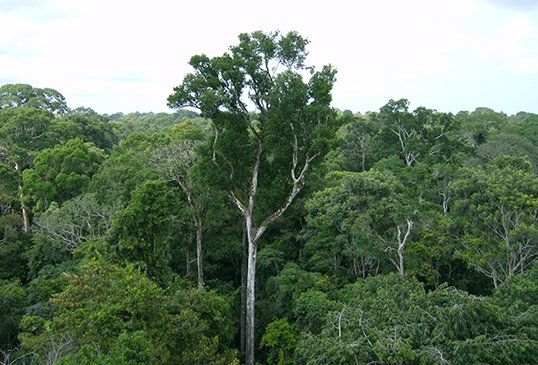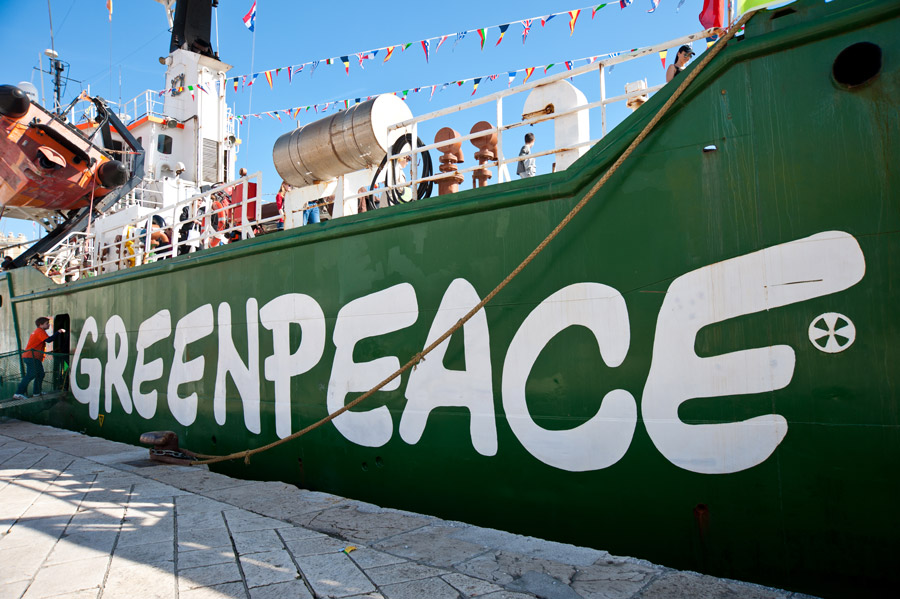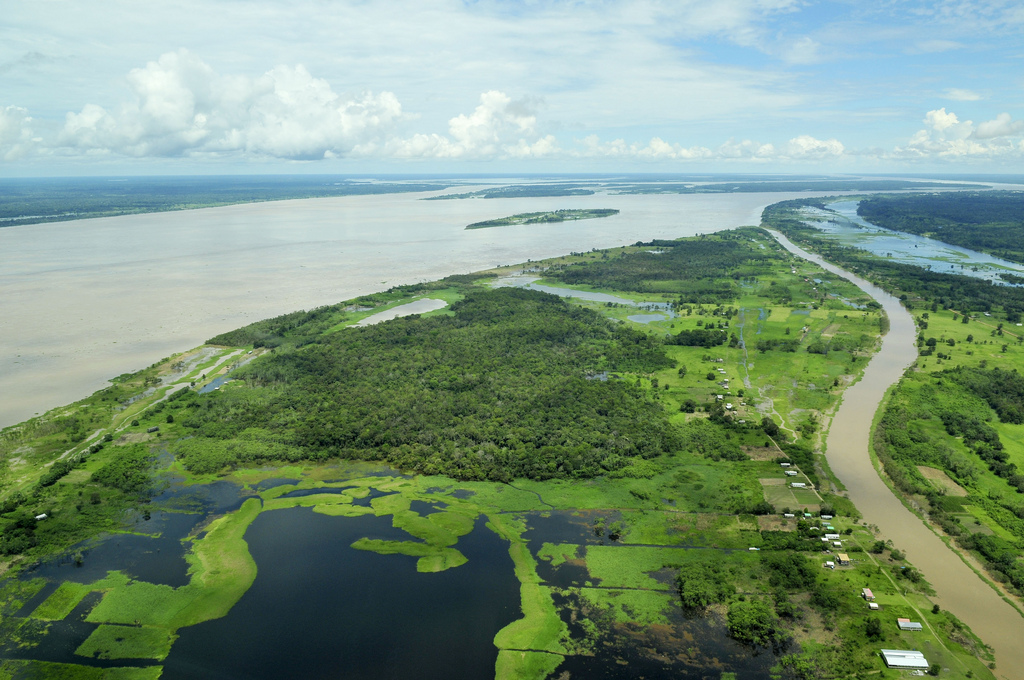Amazon: an invaluable ecological heritage in danger
With an area of six million square kilometers, the Amazon Rainforest is the largest area of ancient tropical forest on the planet. True treasure of biodiversity, it is pillaged and ravaged shamelessly.
The Amazon, vital for the planet
The Amazon basin covers about 6.5 million km² in nine South American countries and represents 5% of the Earth's surface. The Brazilian side alone has more than 24 million inhabitants, including hundreds of thousands from indigenous peoples. These people depend on the forest for food, treatment and other basic services. They also give it spiritual importance.
More than half of the terrestrial animal and plant species are concentrated there. The Amazon basin is thus the reservoir of an exceptional biodiversity: there are 40 000 plant species, 427 species of mammals, 1294 species of birds, 378 species of reptiles, 426 species of amphibians and about 3000 species of fish ...
It also plays a vital role in stabilizing the world's climate and its river, the Amazon, supplies one-fifth of the world with fresh water.
Breeding, a step further to protect the Amazon
despite its natural treasures, this area is in danger. Bulldozers, chainsaws and trucks work tirelessly to slaughter "green gold". During the last forty years, 800 000 km² (the equivalent of one and a half times France) of Amazonian forest have been destroyed. While the pace of deforestation has slowed considerably in the last decade, thanks in particular to the mobilization of Greenpeace, it has gone back slightly in 2016.
In 2009, Greenpeace published a study showing that cattle farming was responsible for 80% of Amazon deforestation, which accounted for 14% of the world's annual deforestation. Following this campaign by Greenpeace, the three largest Brazilian traders signed a "cattle agreement" in 2009 by which they committed to no longer buy animals from deforested areas after 2009. Thanks to these commitments, deforestation due to breeding in the Brazilian Amazon has decreased from 80% to 63%. Nevertheless, breeding remains the leading cause of deforestation in the Brazilian Amazon.
Brazil has the largest commercial livestock in the world (about 211 million animals, more than human beings) and is the world's largest exporter of beef and leather. In that state, four supermarket chains alone account for 50% of the beef market. In November 2015, Greenpeace launched a major campaign targeting Brazilian supermarket chains, the country's leading meat retailers.

source
After Pao de Açucar (Casino Group) and Walmart, which have already made commitments, Carrefour, Brazil's second largest supermarket chain, has announced its new beef supply policy for Brazil in 2016. These three supermarket chains thus create a serious barrier against deforestation and send a strong signal to the entire cattle industry: slaughterhouses in the region will have to adapt. In addition, the three banners have committed to implement a strong monitoring system and to exclude suppliers that do not meet the minimum criteria endorsed by the main slaughterhouses in the country.
These minimum criteria are the result of an agreement signed by major beef slaughterhouses in 2009 after the Greenpeace campaign. The first three signatories of this agreement, JBS, Marfrig and Minerva, the largest slaughterhouses in Brazil, represent about 70% of the sector in the Amazon. According to a scientific study, this agreement was essential to accelerate the regularization and reduction of deforestation on the farms directly supplying the slaughterhouses involved.
For Greenpeace, these commitments, if properly implemented, will make it possible to fight against deforestation but also against working conditions close to slavery and against invasion of the territories of indigenous communities.
Mega dams
The Amazon is now a prey, like the Mekong in Asia, to many mega-dams projects. They are destructive to the environment. Firstly because they interrupt the natural course of the rivers on which many aquatic species depend. Secondly, because they destroy huge forest areas with exceptional floral and wildlife biodiversity, and because they encroach on the ancestral lands of indigenous peoples, often forced into tragic exile. Finally, because they release into the atmosphere huge quantities of methane escaping from stagnant water, a greenhouse gas 25 times more powerful than CO2.

source
Thanks to Greenpeace and the mobilization of the Mundurukus, a planned mega-dam on the Tapajós River, a tributary of the Amazon, has been canceled. It was to engulf under the stagnant waters a vast area like New York. Alas, dozens of other roadblocks are still in the boxes of the Brazilian government.
Behind these mega-projects lie the political interests of the leaders and the economic benefits of a handful of companies, fueling the vicious circle of corruption and embezzlement of public money in Brazil. Other dams built in the Amazon rainforest, such as Belo Monte, are currently at the heart of a corruption investigation in Brazil.
Other clean and equitable sources of energy, such as wind or solar energy, can meet the needs of all Brazilians without destroying the biodiversity and lifestyles of indigenous peoples. Brazil's energy future lies in renewable energies, not in mega-hydroelectric projects.

@ering has voted on behalf of @minnowpond.
If you would like to recieve upvotes from minnowponds team on all your posts, simply FOLLOW @minnowpond.
thank
This post has received a 1.67 % upvote from @buildawhale thanks to: @said8000. Send at least 1 SBD to @buildawhale with a post link in the memo field for a portion of the next vote.
To support our daily curation initiative, please vote on my owner, @themarkymark, as a Steem Witness